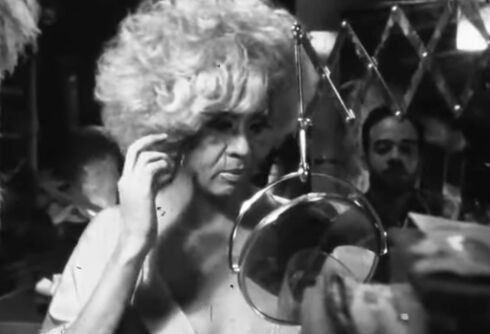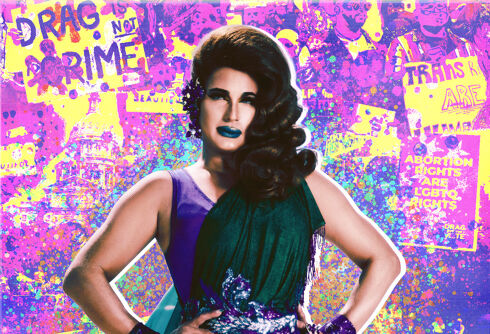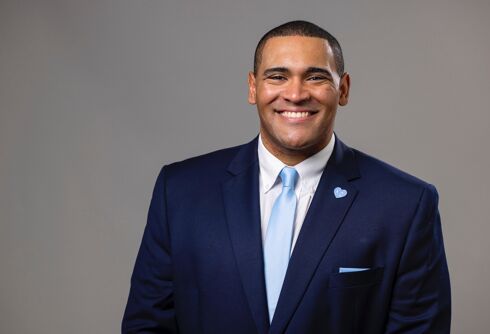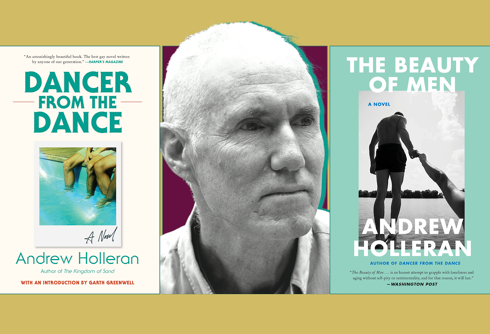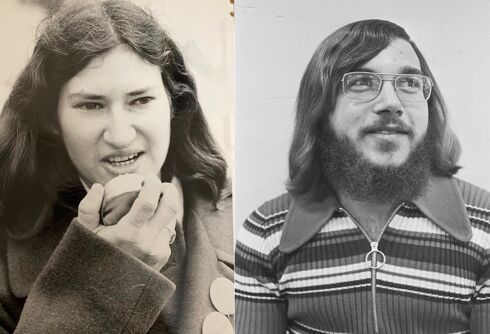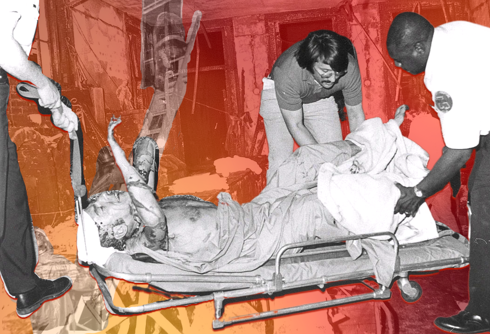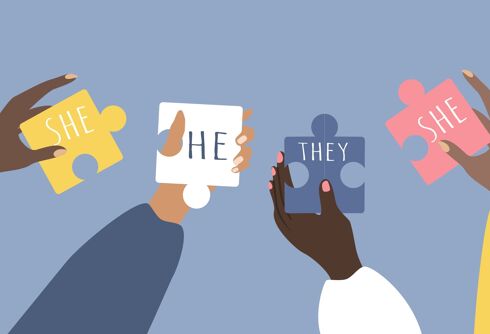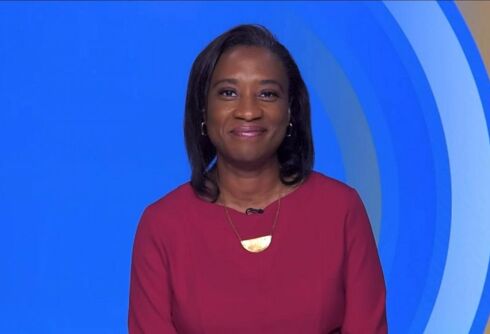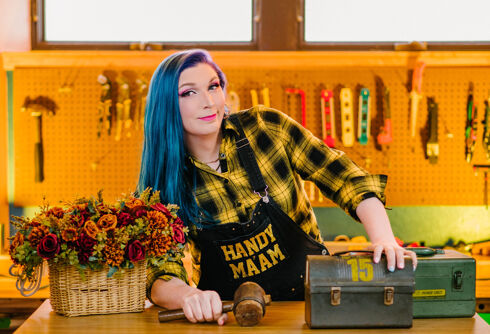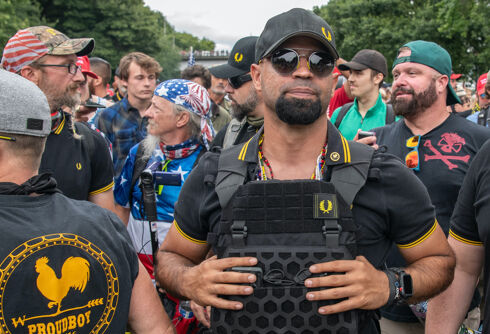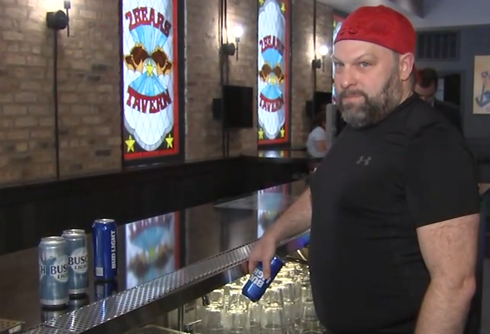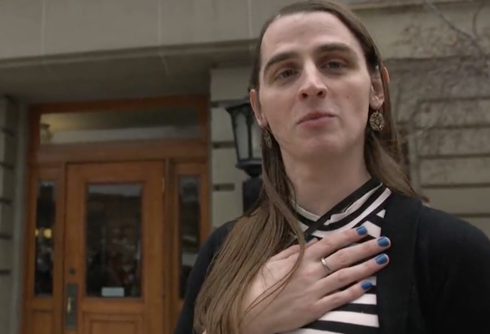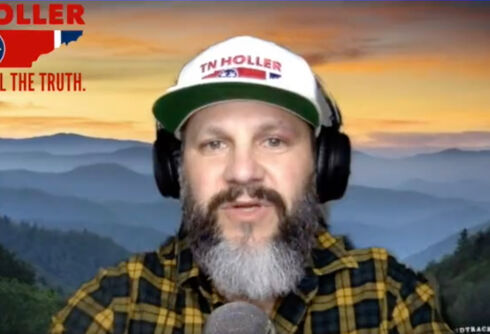While the upcoming election may be the most important midterm election in our lifetime for LGBTQ rights, nowhere are things more tense for transgender people than in Massachusetts. Their rights are literally on the ballot.
On the 6th of November, those in the Bay State will be asked to vote on Question 3. A “no” vote would repeal Massachusetts’s current transgender anti-discrimination protections, which were approved by the state in 2016.
It would also likely set the stage for similar efforts across the country, as anti-transgender groups ramp up attacks on LGBT people.
The question as worded seems deceptive: a “no” vote on Question 3 would repeal the protections, while a “yes” vote would leave them intact.
Never Miss a Beat
Subscribe to our newsletter to stay ahead of the latest LGBTQ+ political news and insights.
We spoke to a few transgender folks in Massachusetts, to see how they were feeling on the lead up to the midterms, and found that the overall mood is both nervous and defiant as people see their rights under threat once again.
One trans woman in particular, Lorelei Erisis, has been speaking out quite a bit on Question 3, even ending up the “face” for materials opposing the referendum put out by Eastern Bank.
“It’s tiring,” Erisis says about the struggle. “I’ve been in the fight for full trans equality in Massachusetts for about ten years now… and honestly, most of us would love to have been able to move on to other work after we passed that law.”
James Kaydin Tackett, a transgender man who grew up in Texas but now resides in Massachusetts was more angry than tired.
“I feel a very confused sort of upset,” said Tackett. “At the previous year’s Pride Parade, I had taken a picture of the trans pride flag flying at city hall. I sent it to my mother who is supportive of me and quoted David Ortiz: ‘This is OUR (expletive) CITY!’ The fact that this is even up for a debate feels so out of left field.”
Even before the election, transgender people are dealing with challenges brought up from the measure.
“The repeal itself, regardless of the outcome, is already having a negative effect on transgender people throughout the state,” said Patricia Wright, a Bostonian. “The groups promoting this repeal are claiming that this is a safety issue for cisgender women. They claim that men will somehow use the law to pretend to be trans, and assault women in bathrooms.”
“Transgender people, especially transgender women, are being painted as potential threats worthy of enhanced scrutiny as we go about our daily lives,” Wright added. “Those who are anti-trans to begin with feel more authorized to act against us.”
Tackett was hopeful, even though he noted that far right opponents are doing their best to raise unfounded concerns with scare tactics.
“The response I’ve seen from activist groups all across the area has been swift and relentless,” said Tackett. “People appear to know how absurd it would be to over turn these protections and have generally seen through the fear mongering.”
A writer and ally from Massachusetts, Hillary Monahan, spoke on how she looks at Question 3.
“When you leave the voting box, you’ll either be the person who protected one of our most vulnerable populations or you’ll be the pro-bigot who bought into a manufactured hysteria,” said Monahan. “Which person do you want to be?”
Likewise, Wright countered the fear mongering.
“The only threat a cisgender woman has from a transgender woman, is that she might have one more person waiting in front of her for the bathroom stall,” said Wright. “Just another woman in line wanting to pee.”
Still, activists vow to keep fighting regardless.
“As a trans person, it’s tiring to keep having the same arguments over and over, but I’ll keep doing it — and we’ll keep fighting,” said Erisis. “Because it’s the right thing to do.”





































